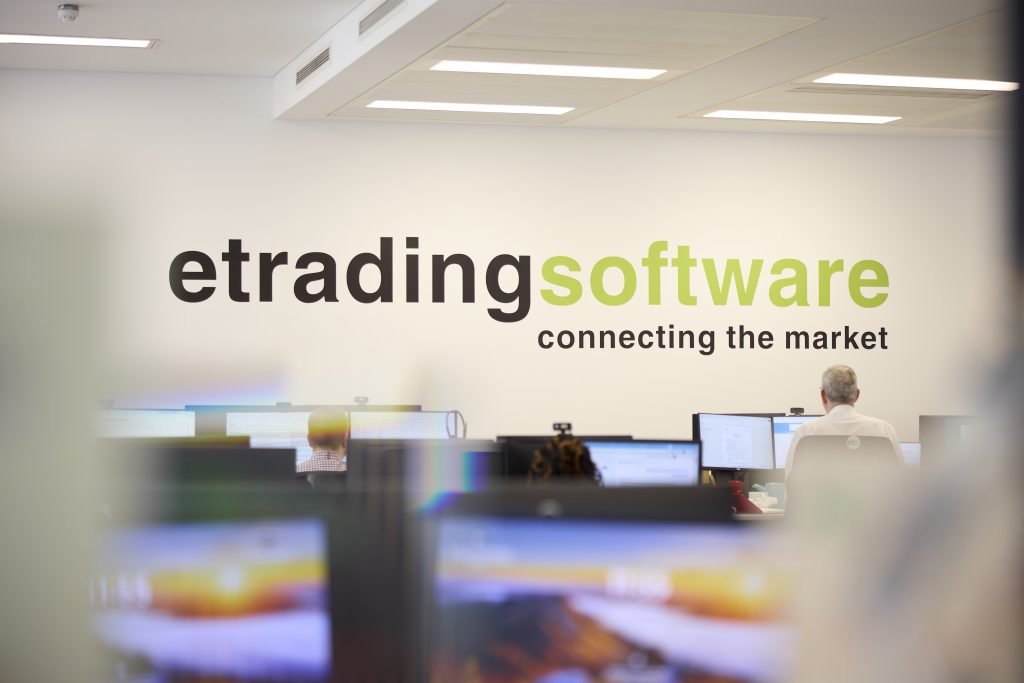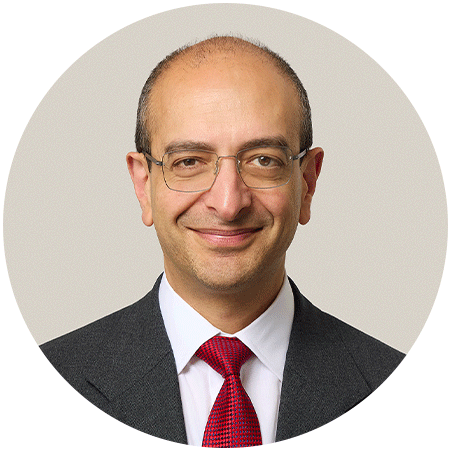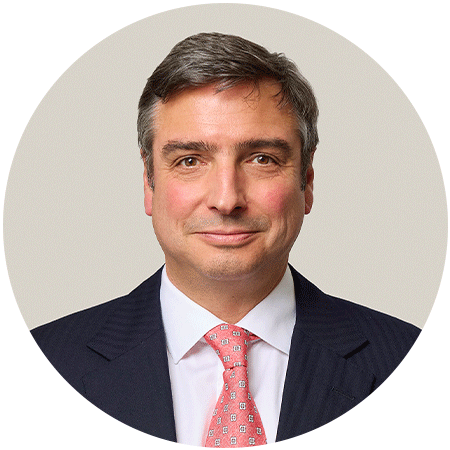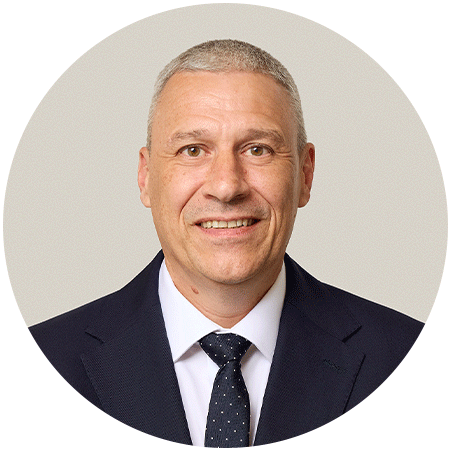
Automated Solutions, Managed Services, and Reference Data for the Global Capital Markets.

ABOUT ETRADING SOFTWARE
Etrading Software designs, builds and operates technology solutions for the global capital markets. We operate regulatory-led capital market infrastructures that combine robust governance and transparency with high operational efficiency. We also operate market-led infrastructures that provide automated solutions to our clients for previously manual processes. Our focus on governance, efficiency and automation has resulted in our solutions being sought after by the overseers and operators of global capital markets.
The Financial Industry Landscape & Customer Challenges
Increasing Costs and Regulation
As the world becomes more global and interconnected, financial markets are no longer restricted to their local jurisdictions. As banks move into new markets, they are looking to create better efficiency and interoperability in order to remain competitive in this international arena.
The Financial Services industry is constantly facing costs which come with increasing demands to innovate, driven by competition and regulation, particularly in fixed income and foreign exchange OTC markets, placing ever-increasing pressure on individual organisations’ internal resources and systems. To help stabilise the financial markets in the wake of the 2008 crash, the industry has had to face a slew of new regulations year after year. While good for the industry as a whole, these new regulations pose serious challenges for firms who have to allocate resources away from developing core business strategies in order to meet their extensive compliance obligations. Failure to comply can result in serious penalties and reputational damage, which can create further competitive disadvantages for the organisation or even mean the termination of a business line, function or division.
Solving regulatory and market challenges requires a significant amount of human resource to keep pace with, understand and document the changing landscape, often alongside a significant change in technology. Trying to solve this challenge by developing ideas at incubation level on an institution by institution basis as well as collaboratively, demands substantial investment by each individual institution in areas that provide limited or no competitive advantage. There is a growing appreciation for how Etrading Software generates the advantages that come with collaboration to develop industry-wide utility solutions, thereby freeing firms to create competitive advantage elsewhere.
Increasing Workflow Efficiencies and High Quality Data
The move to electronic trading in fixed income and other asset classes puts pressure on firms to update their existing legacy systems and get to grips with the aggregation and standardisation of data or risk being left behind.
As more OTC trading turns electronic, there is a need for ease of connectivity to the ever-changing universe of exchanges and alternative liquidity venues in order to access the increasingly fragmented pools of liquidity. The data flowing down these connections also needs to be harmonised and sifted for quality. Finally, building standardised workflows to process the data is essential to allow firms to benefit from cross-border efficiencies, harmonised data, and realise the all-important marginal gains that interoperability can offer.
Disintermediation and Changing Trading Landscape
As the pace of electronification has increased, a few incumbent vendors have established the requisite connectivity between liquidity providers and liquidity takers. There is evidence to support the argument that the vendor-client interests become less aligned over time as the vendor’s dominance grows, with potential loss of governance for financial institutions and the increased risk of disintermediation between such institutions and their clients. This vendor dominance has slowed the pace of innovation in many cases and increased costs, at a time when market participants continue to struggle with sourcing real-time liquidity.
Why it matters

Mutualising Costs
It is becoming increasingly important to identify common areas where the industry can work together, where it is in everyone’s interest to standardise operations and processes. Through collaboration on commonalities, the industry is able to mutualise costs and increase efficiencies in non-competitive areas, freeing firms to focus time and resources in developing new opportunities that will generate revenue and establish competitive differentiators.

Innovative Technology
Addressing the rising technology cost is possible by industry participants working together to create innovative technology solutions truly designed by the market, for the market. This collaborative approach means that the evolution of the solutions is guided by industry users rather than the interests of the vendor. New technology can replace workflow legacy systems, or even build electronic systems where there are none.

Regulation as a Driver
By working together on regulatory challenges, market participants are able to minimise regulatory costs and uncertainty through shared analysis and implementation. Having a mutualised approach allows firms the flexibility to not only meet new regulatory requirements but also continue to develop the regulatory solutions together whilst keeping control of the associated intellectual property and governance. By using technology-driven, industry-led approaches, firms are able to streamline and automate regulatory requirements, thereby improving efficiency and reducing their overall commercial risk.
OUR LEADERSHIP TEAM
The Etrading senior team have years of experience in financial markets, and are well connected to key participants in the industry as well as the regulators.
EMANUEL MOND
Chairman
Emanuel is a seasoned fintech entrepreneur with over 40 years experience in the sector. He has helped build and sell a number of companies including Monis Software (to SunGard), Whitakker Garnier (to Insight Partners), Cadis (to IHS Markit) and Livingstone Technology (to Carlyle).
Emanuel was previously President, Alternative Investments at SunGard and is currently serving as an NED of Ohme and as Chair of MDX Technology.
He is a qualified solicitor and has an LLB from London School of Economics and MSc from London Business School
SASSAN DANESH
Chief Executive Officer
Sassan’s focus is on the role of technology in addressing industry-wide issues. He is passionate about the benefits of industry collaboration to create critical market infrastructures that optimise inefficiencies in the industry.
Sassan is a member of the Financial Services Committee of the British Standards Institution (BSI), assisting in defining electronic standards for the UK financial services industry. He is also a member of the International Organisation for Standardization (ISO), assisting in the creation of electronic standards for the global financial services industry.
Prior to co-founding Etrading Software, Sassan worked at JP Morgan for 11 years, building technology solutions to support the fixed income sales and trading businesses.
James Oliver
Chief Financial Officer
James joined ETS in December 2022. His background and experience are around helping high growth businesses reach their full potential, particularly when external investment is deployed.
As part of his financial responsibilities, he is focused on developing and implementing strategy, governance, and ensuring the business is positioned to be able to scale and deliver on its planned objectives.
Prior to working as a CFO, James spent 12 years at Deloitte helping clients with M&A and financing needs. James is a chartered accountant and studied for a BA in chemistry at St Edmund Hall, University of Oxford.
GRANT WILSON
Non-Exec Director
Grant’s focus is on running collaborative models for the industry to address market-wide challenges. With extensive knowledge of trading software, he has helped numerous market-leading firms measure & optimise their existing trading technology.
He has over 19 years’ experience working for financial institutions in London, NY and Asia. Grant’s current focus is on bringing the benefits of automation and electronification to the Loans asset class.
Prior to Etrading Software, Grant worked for Goldman Sachs for 8 years including as business lead for electronic trading and regulation for the credit business in EMEA across trading, sales and clearing business. Before that, Grant held positions at Morgan Stanley working in FX. Grant’s background combines deep product and business knowledge across FICC with extensive experience in market structure change.
JOSEPH FISON
Joseph was appointed as a Non-Executive Director for ETS in December 2022. He has been Investment Director in the London investment team of LDC since January 2019 with a focus on the technology, media and telecommunications (TMT) sector.
Joseph has more than 15 years’ experience managing technology companies and investments. Prior to joining LDC, Joseph was a partner and Director of Principal Investments at Cumulus Asset Management where he led a number of investments into technology businesses internationally.
Joseph has an MA in Natural Sciences and an MSci in Experimental and Theoretical Physics from the University of Cambridge. He is a CFA charterholder.
ALEX WHITE
Non-Exec Director
Alex was appointed as a Non-Executive Director for ETS in December 2022. Alex works with ambitious management teams looking to grow their businesses with the support of a private equity partner.
He joined LDC in 2021 from mid-market private equity firm, Next Wave Partners, where he supported new investments and worked with portfolio company management teams.
Alex previously held a portfolio company financial management role with Maris, an investment holding company; and began his career at PwC in Audit and Transaction Services, conducting financial due diligence for transactions.
Alex read Modern History and Politics at St Anne’s College, University of Oxford and is a chartered accountant.


















